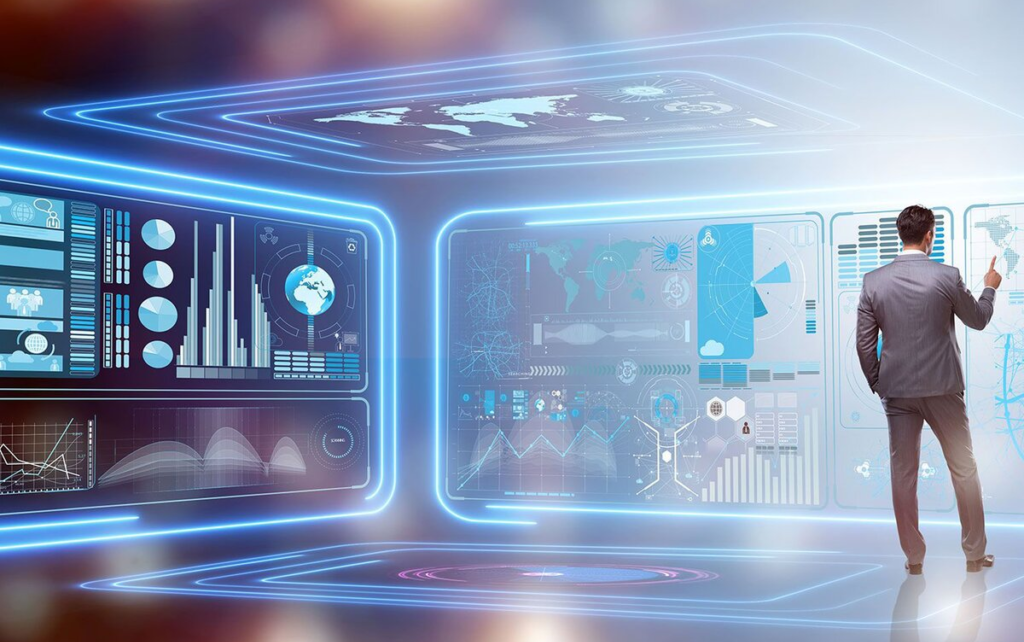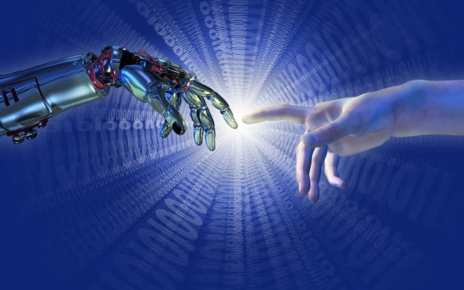The ever-evolving world of technology has consistently brought us innovations beyond our wildest imaginations. As we stand on the precipice of a new era, it’s intriguing to speculate on what the computer of the future might look like and what capabilities it could possess. In this article, we’ll delve into the realms of technological speculation and explore what the computer of the future could be capable of.
Quantum Computing: Unleashing Unprecedented Power
The future of computing may belong to quantum computers. These machines harness the principles of quantum mechanics to perform operations at speeds that are incomprehensible with classical computers. In the future, quantum computers might:
- Solve Complex Problems Instantaneously: Quantum computers could revolutionize fields like cryptography, materials science, and drug discovery by solving complex problems in a fraction of the time.
- Advanced Artificial Intelligence: Quantum computing could usher in a new era of AI, enabling machines to understand and process data at levels far beyond what’s possible today.
- Optimized Traffic Management: Quantum computers could help alleviate traffic congestion, providing real-time solutions for efficient transportation systems.
- Climate Modeling: Predicting and mitigating the impacts of climate change would become more accurate with the immense computational power of quantum computers.
Superhuman AI: An Evolved Form of Companionship
The computer of the future might host AI entities that aren’t just intelligent but possess a deep understanding of human emotions. Here’s what to expect:
- Emotional Intelligence: Future AI could comprehend and respond to human emotions, providing companionship, emotional support, and therapy.
- Personalized Assistance: These AI could understand individual preferences, anticipate needs, and offer solutions tailored to each person’s lifestyle.
- AI Ethics: AI entities might be imbued with ethical guidelines to ensure they make morally sound decisions.
- Creative Collaborators: AI could become indispensable creative collaborators, helping individuals compose music, write novels, and create art.
Virtual and Augmented Reality: An Enhanced Digital Existence
The computer of the future will likely immerse us in entirely new realities. With advanced virtual and augmented reality (VR and AR), we can expect:
- Holodeck-Like Environments: VR could create holodeck-style experiences where we can explore virtual worlds as if they were real.
- Education and Training: VR and AR might transform education and training, allowing immersive learning experiences.
- Enhanced Communication: Future computers could offer lifelike virtual meetings and social interactions, bridging geographical divides.
- Medical Advancements: VR and AR could revolutionize medical diagnosis, treatment, and surgery by providing realistic simulations.
Sustainability and Efficiency: Environmentally Friendly Computing
The computer of the future will likely be eco-conscious, with the following characteristics:
- Green Computing: Future computers could be designed with sustainability in mind, reducing energy consumption and electronic waste.
- Renewable Energy Integration: Computers may incorporate renewable energy sources, such as solar and wind power, for sustainable operations.
- Recycling and Materials: These machines could be constructed from recyclable or biodegradable materials, minimizing environmental impact.
Security and Privacy: Protecting the Digital Realm
Future computers will undoubtedly address the evolving challenges of security and privacy, ensuring:
- Unbreakable Encryption: Quantum-resistant encryption could safeguard data against even the most advanced threats.
- Privacy-Centric Design: Future computers may prioritize user privacy, offering robust controls over data collection and sharing.
- Enhanced Cybersecurity: Advanced AI could autonomously detect and thwart cyber threats, ensuring a safer digital environment.

In conclusion, the computer of the future holds the promise of transformative advancements across various domains of life. As we embrace quantum computing, AI companions, immersive realities, sustainable practices, and heightened security measures, we’ll navigate a future where the potential for innovation knows no bounds. The computer of the future might well be the harbinger of a new age, propelling humanity into realms previously limited only by our imaginations.
List of the Most Powerful Desktop Computers and Laptops:
The list of the most powerful desktop computers and laptops can change over time as technology continuously evolves. Here are a few high-performance devices that were notable as of my last update in September 2021. Please note that newer and more powerful models may have been released since then.
Most Powerful Desktop Computers:
- Apple Mac Pro:
- Specifications: Up to 64-core processor, up to 1.5 TB of RAM, up to 8 TB of SSD storage.
- Approximate Price: Ranging from $5,999 to $52,999, depending on configuration.
- Dell Alienware Aurora R10:
- Specifications: Up to an AMD Ryzen 9 5950X processor, up to 128 GB of RAM, up to 2 TB of SSD storage.
- Approximate Price: Ranging from $1,199 to $3,499, depending on configuration.
- HP Omen Obelisk:
- Specifications: Up to an Intel Core i9 or AMD Ryzen 9 processor, up to 64 GB of RAM, up to 2 TB of SSD storage.
- Approximate Price: Ranging from $1,199 to $2,599, depending on configuration.
Most Powerful Laptops:
- Alienware Area-51m:
- Specifications: Up to Intel Core i9 processor, up to 64 GB of RAM, up to 8 TB of storage (including SSD and HDD).
- Approximate Price: Ranging from $2,299 to $4,499, depending on configuration.
- Asus ROG Zephyrus G14:
- Specifications: AMD Ryzen 9 processor, up to 32 GB of RAM, up to 1 TB of SSD storage.
- Approximate Price: Ranging from $1,149 to $1,899, depending on configuration.
- Apple MacBook Pro (16-inch):
- Specifications: Up to Intel Core i9 processor, up to 64 GB of RAM, up to 8 TB of SSD storage.
- Approximate Price: Ranging from $2,399 to $6,099, depending on configuration.
Please keep in mind that the prices and specifications mentioned here are approximate and were accurate as of September 2021. To find the latest information on these powerful devices and discover new, even more advanced models, it’s recommended to visit the manufacturers’ official websites or consult technology news sources.



